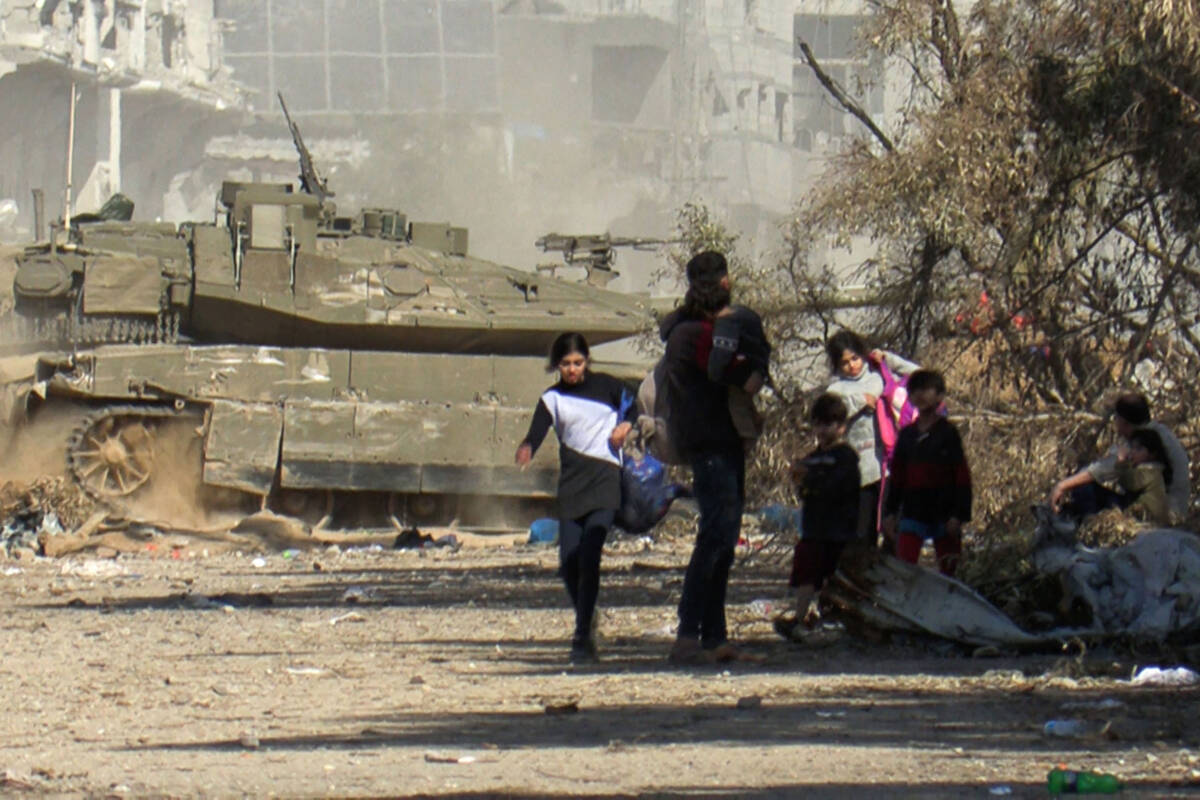U.S.: Report of Israel-Hamas deal to allow hostage release was premature

A deal for Hamas to release hostages taken during its Oct. 7 terrorist attack on Israel may be the closest yet and would require a multiday pause in the fighting in Gaza, U.S. Deputy National Security Advisor Jon Finer said.
“We are closer than we have been in quite some time, maybe closer than we have been since the beginning of this process to getting this deal done,” Finer said Sunday in an interview with NBC’s “Meet the Press.”
Negotiations “have clearly reached a very sensitive stage” after “significant progress” in recent days and hours, he said on ABC’s This Week.
“We think it is possible, but it’s not done yet,” Finer told NBC. A prisoner exchange involving Israel is among the topics being discussed, he said.
President Joe Biden has backed Israel in opposing a cease-fire with Hamas, which rules Gaza and has been designated a terrorist group by the United States, Canada and the European Union. In contrast, a pause lasting multiple days would be necessary to allow hostages to be safely moved out of the battlefield, Finer said.
“We’re talking about pausing the fighting for a few days so we can get the hostages out,” Michael Herzog, Israel’s ambassador to the U.S., told ABC. While Israel’s military operation to dismantle Hamas won’t stop, “we are willing to go for a pause for a significant number of hostages if we have a deal,” he said.
A pause would have the added benefit of allowing stepped-up humanitarian aid to Gaza residents, Finer said on NBC.
“Having a deal that causes a pause in the fighting would make it easier to get more in faster,” he said.
With Israel potentially expanding combat operations into southern Gaza, the U.S.’s position remains that the Israeli military has a right to pursue Hamas’s leadership while urging Israel to avoid civilian casualties, Finer said.
“There is a real concern because hundreds of thousands of residents of Gaza have fled now from the north to the south at Israel’s request,” Finer said in an interview to air on CBS’s “Face the Nation.”
“We think that their operation should not go forward until those people, those additional civilians, have been accounted for in their military planning,” he said. “So we will be conveying that directly to them and have been directly conveying that to them.”
Qatar has been mediating in hostage talks with Hamas.
A spokeswoman for the White House’s National Security Council, Adrienne Watson, said late Saturday there was no deal yet after the Washington Post reported that Israel and Hamas had arrived at a tentative, U.S.-brokered hostage agreement.
Late Saturday night, the newspaper walked back its report of a tentative deal, and reported that Israel and Hamas were “close to an agreement.”
Hours before the National Security Council statement, Israeli Prime Minister Benjamin Netanyahu dismissed what he called “a lot of incorrect reports” about an imminent hostage deal, said a story in the Times of Israel.
“As of now, there is no deal,” Netanyahu said on Saturday night in Israel.
A spokesperson for the Israeli Embassy in Washington declined to comment on any aspect of the hostage situation to The Washington Post.
Around 239 people are believed being held captive in Gaza. A break in fighting would allow for an increase in the amount of humanitarian aid, including fuel, to enter the besieged enclave, said Brett McGurk, who is Biden’s coordinator for the Middle East and North Africa.
McGurk was speaking Saturday at the International Institute for Strategic Studies’ Manama Dialogue summit, a regional security conference in Bahrain.
Israeli National Security Council head Tzachi Hanegbi has told reporters in recent days the war Cabinet had agreed that a limited cease-fire could only happen after “a massive release of our hostages … and it will be limited and short, because after that we will continue to work towards achieving our war goals.”
——
The New York Daily News contributed to this story.